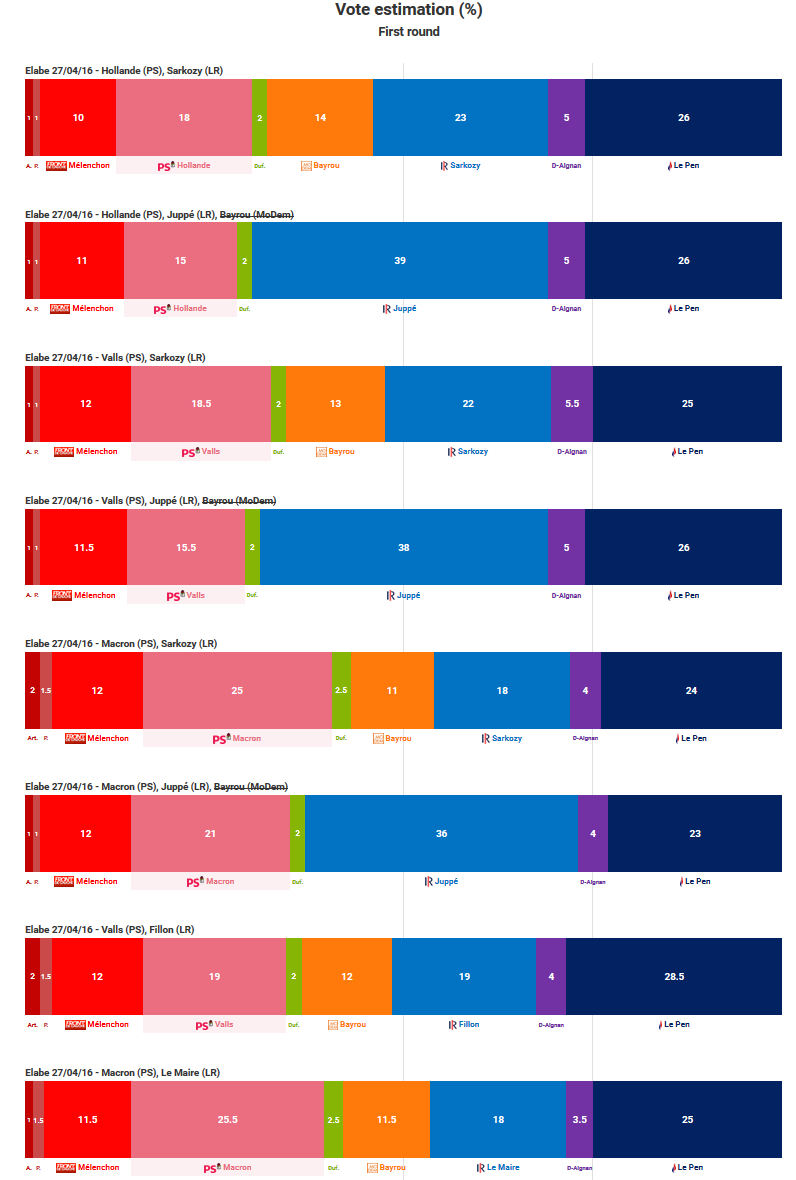Giuseppe Sandro Mela.
2016-05-12.

Come i tacchini di Renzo, i socialisti francesi proseguono imperterriti a beccarsi tra di loro.
Hanno capito che le prossime elezioni presidenziali saranno il massacro di Canne, recitando loro la parte dei romani.
Sanno anche che non si prenderanno prigionieri.
*
La posta in gioco è semplice.
Con il partito socialista ridotto ad un terzo dei consensi pregressi, due terzi degli attuali eletti in tale lista se ne resteranno a casa. Perderanno stipendio, prebende e tutto ciò che non si può dire pubblicamente. Perderanno l’immunità parlamentare e la stampa sarà in quel frangente tutta intenta ad osannare con untuosa piaggeria i nuovi potenti.
«The government of socialist President Francois Hollande faces a vote of no confidence after determining to use rule 49-3 to push through controversial labor reform. Hollande’s lawmakers are also under pressure.»
*
«On Wednesday, rebel socialist lawmakers in the lower house of the National Assembly failed by just two votes to go ahead with their own no-confidence vote.»
*
«They needed support from 58 lawmakers to table the motion but obtained only 56.»
*
Ogni altro commento dovrebbe essere ridondante. Il redde rationem si sta avvicinnùando a grandi passi.
→ Deutsche Welle. 2016-05-12. French government under pressure ahead of no confidence vote
The government of socialist President Francois Hollande faces a vote of no confidence after determining to use rule 49-3 to push through controversial labor reform. Hollande’s lawmakers are also under pressure.
*
The French government’s decision to use special powers under article 49-3 of the Constitution to push through hotly contested labor reforms has led the conservative opposition to file a censure motion.
The vote of no-confidence in the government is due to be heard on Thursday. While the vote is likely to fail as ruling party members back Hollande, it does highlight the weakness and unpopularity of his socialist government.
On Wednesday, rebel socialist lawmakers in the lower house of the National Assembly failed by just two votes to go ahead with their own no-confidence vote. They needed support from 58 lawmakers to table the motion but obtained only 56.
Contentious labor reform
The labor reform makes it easier to lay off workers and weakens some union powers. It relaxes rules on the 35-hour work week and has sparked protests around the country in recent weeks.
“This text, useful for businesses and for workers, faces – and I regret it – opposition from all sides. My responsibility is to move forward and ensure that this text is adopted,” Prime Minister Manuel Valls said on Tuesday.
Valls found himself under pressure on social media on Wednesday, responding to the Twitter account House of Cards, based on the political thriller television series, Valls wrote:
«Dear Frank, Democracy is the worst form of Government, except for all others 😉 Never forget!»
Seven labor unions and youth organizations have organized demonstrations for Thursday. The decision to invoke rule 49-3 means the government “refuses the democratic debate on this law,” the FIDL youth organization said in a written statement.
Article 49-3 allows the government to bypass the lower house of parliament and go straight to the Senate to request approval of its policies. It was used last year to force through economic reforms, including allowing shops to open more often on Sundays.
Members under pressure
Simultaneously, the individual behavior of lawmakers has again come under scrutiny.
After issuing denials, Finance Minister Michel Sapin admitted on Wednesday to behaving inappropriately towards a woman. “During a trip to Davos in January 2015, in a group of about 20 people, I made a comment to a journalist about her clothing and put my hand on her back,” Sapin said in a statement, adding that his actions should not be “confused with the seriousness of harassment or sexual assault.”
Spokeswoman for the Greens party Sandrine Rousseau welcomed Sapin’s statement, saying it was indicative that male politicians felt they had to explain themselves over allegations. Rousseau was one of a group of women who on Monday accused lawmaker Denis Baupin of harassment. Baupin resigned as vice president of the National Assembly but denied any wrongdoing.
Three-quarters of all lawmakers in the National Assembly are men. There have been a series of accusations of sexual harrassment within government and by high officials – most notably the charges made against Dominique Strauss-Kahn when he headed the International Monetary Fund and was touted as a possible future French president. He faced charges of sexual assault on a hotel maid in New York in 2011. The charges were eventually dropped and the case was settled in a civil suit.